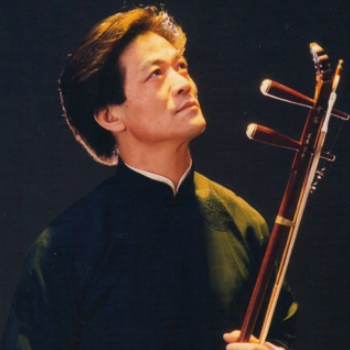Huang Anyuan

Huang Anyuan, born in Chongqing in November 1945, is a Chinese huqin player and graduated from the China Conservatory of Music.
Huang Anyuan's original ideal was to be an acrobat, but finally he entered the world of erhu under the influence of his elder brother. Since the age of eight or nine, after several years of teaching and learning by my eldest brother, I have been on stage in Chongqing as a soloist. After Huang Anyuan finished his second year of secondary school, the secondary music school affiliated to the Central Conservatory of Music went to Chongqing to enroll.
Huang Anyuan studied the six-year erhu major in the high school attached to it. After graduating in 1963, he was recommended to be admitted to the Central Conservatory of Music and the China Conservatory of Music for further studies, and successively studied under Nie Jingyu, Lan Yusong and other teachers. After graduation, Huang Anyuan joined the Beijing China Peking Opera Troupe and the China Railway Art Troupe successively. In addition to serving as the erhu and banhu soloist and the principal of the Chinese Orchestra, Huang Anyuan also played the violin in the orchestra, participated in the violin unison group, and was also a member of the creative team.
In 1977, he moved to Hong Kong and joined the Hong Kong Chinese Orchestra; in October, he held the first professional concert in the 2nd Asian Arts Festival, and Huang Anyuan performed "Hua Bangzi" with a banhu solo.
In 1981, he served as the head of the Hong Kong Chinese Orchestra (renamed as "chief of the orchestra" since September 2008) and the voice director and assistant conductor of the string-pulling group.
In March 1983, he made his debut in Taiwan, China.
In 1985, the album "Butterfly Dream" was released; in the same year, he was selected as the "Top Ten Outstanding Young People in Hong Kong".
In 1986, he went to South Korea with the Hong Kong Philharmonic Orchestra to perform on the Asian Games tour.
In 1987, the album "Wine Song" was released.
In 1989, he toured Japan with the Shanghai Symphony Orchestra; in the same year, he won the first Performer of the Year Award from the Hong Kong Artists Union.
On January 7, 1991, he held a solo recital at Carnegie Hall in New York, USA. In 1992, he served as assistant conductor, consultant of Hong Kong Performing Arts Development Council, executive director of China National Orchestra Association, life member of British International Celebrity Biography Association, member of American Celebrity Association, and taught at the Hong Kong Academy for Performing Arts and the Chinese University of Hong Kong; in the same year, he was awarded the American REO Company Selected as "Outstanding Men of the 90s"; in July, he was invited to New York to hold three recitals.
 渝公网安备 50010702504639号
渝公网安备 50010702504639号